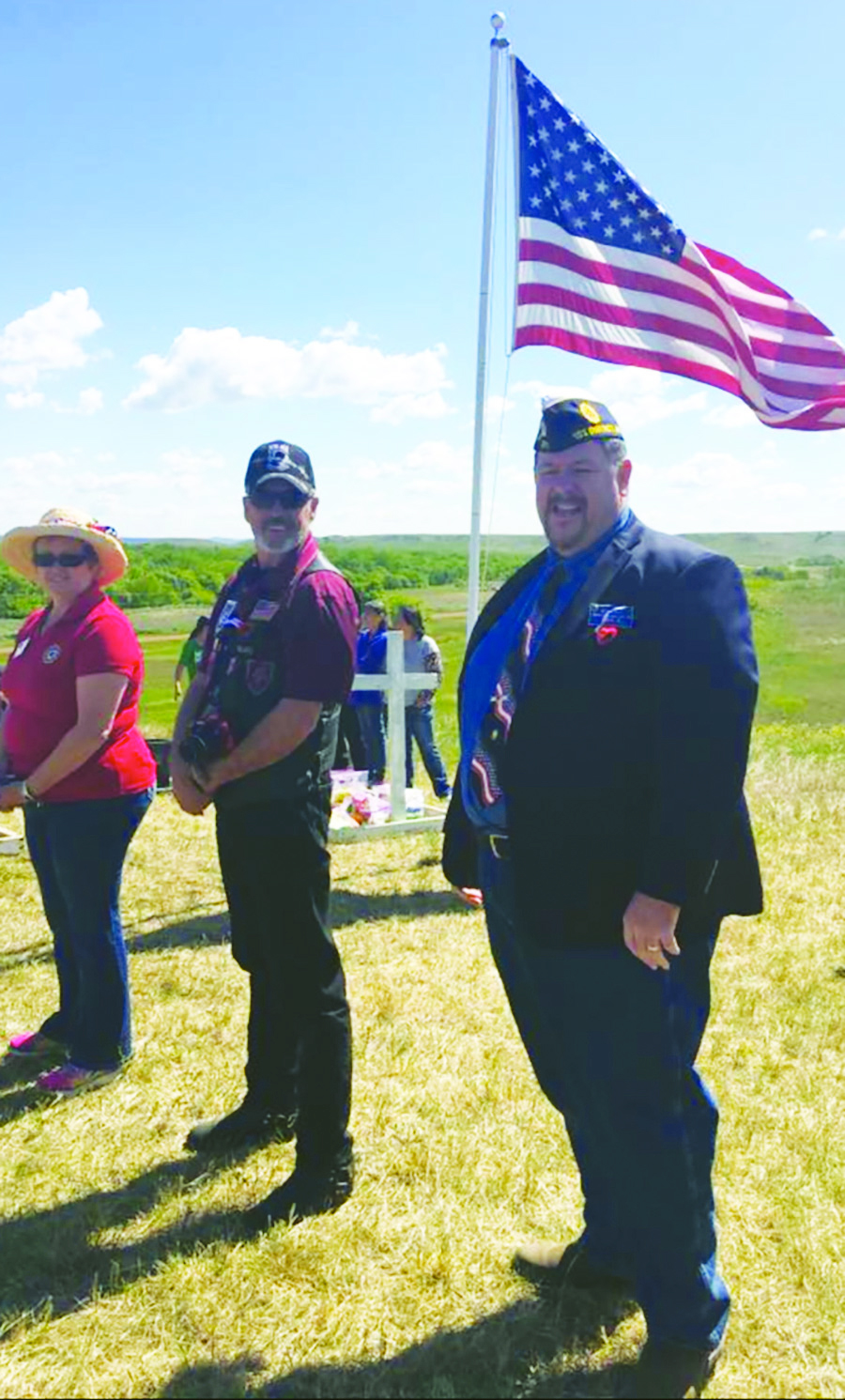Each Memorial Day, American Legion Family members from posts all over the world do what we feel called to do: honor the fallen heroes who made the ultimate sacrifice in the course of military service.
This heartfelt moral obligation and desire to honor them is one of the many things that unite the Legion Family – members of The American Legion, American Legion Auxiliary, Sons of The American Legion, and Legion Riders. We remember, and remind others, so our fallen heroes and their supreme sacrifices are never forgotten. Honoring them is our legacy that has been in the making for decades, long before Memorial Day became a federal holiday in 1971.
The way American Legion Family members honor may slightly differ, given certain traditions of various cultures, religions, and backgrounds. But always, the concepts of reverence and respect are at the heart of any tribute paid to fallen servicemembers and their families by any member of the Legion Family.
We see how the Legion Family at Looking Back-Growler-Jamerson Post 239, located on Standing Rock Sioux Indian Reservation in Little Eagle, S.D., performs its Memorial Day tributes at several cemeteries. Like most other tributes on this day, sincere words – speeches and prayers – are spoken. Solemn military music is played and/or anthems are sung. The U.S. and Legion Family flags are on display in their full glory. Gun shots shatter silence as part of a military salute.

Three members of the Legion Family at Looking Back-Growler-Jamerson Post 239 in Little Eagle, S.D. stand together during a Memorial Day service.
Photo Provided
Then there are those things that are different about the ceremonies done by Post 239, whose Legion and ALA unit members are predominantly Native American. Those differences, meant to pay the utmost respect, are the cultural traditions – such as the placement of items on the gravesites as part of the memorial service. The items are gifts given to the living in honor of the deceased veterans.
“The family brings the gift. It might be something that can be eaten right there. For one grave, and it’s been this way for years and years, the family brings breakfast burritos and they give them to remember a World War II veteran. Another family might bring tobacco. Another family might bring oranges. And pop. And chips. And candy. Or, you’ll see a blanket in remembrance of a fallen comrade,” explained Post 239 Commander Frank Jamerson, a member of Standing Rock Sioux Tribe.
“The family members will call upon the [living] veterans to take the opportunity to come and receive a gift from the family. They’re gifts ‘In remembrance of’ and to say thanks to our living veterans, our brothers in arms. But also, for those who are gone, we give gifts in their honor to say ‘We remember you. And we won’t forget you,’” Jamerson added.
Post 239 conducts numerous Memorial Day services, each of which include the gift element. The day starts at about 9 a.m. and ends at about 5 p.m. That includes a midday break for meals prepared by ALA members and possibly other community volunteers.
The day begins with the service participants gathering about 10 miles west of the Little Eagle Community. They start with morning prayers, sometimes spoken in Lakota, their native language.
“We make our way through the different cemeteries. Some of them belong to churches. Some of them are family cemeteries. There are various stops along the way, at graveyards, to remember fallen comrades. We even have Indian scouts buried there, whom we recognize as well. We have veterans buried here who served in World War I, World War II, Korea, and then we have those who served in Vietnam,” Jamerson said, noting that seven Sioux Code Talkers are also honored in Post 239’s memorial service.
Code Talkers were enlisted Native Americans of various tribes whose jobs were to protect American military radio, telephone, and telegraphic messages from enemy intelligence gatherers by transmitting messages in their native languages and dialects. Code Talkers played key parts in WWI and WWII, according to the U.S. Army’s website. Their work was classified for many years until Congress passed the Code Talkers Recognition Act in 2002.
“The pride in our community of having great leaders of the past and these modern-day warriors who fought for our country, who were recognized as Code Talkers and who, in some cases, made the supreme sacrifice – these are the reasons why Memorial Day is so good for us. To be able to continue to bring those names up, so they’re not forgotten… that means so much,” Jamerson said. “We give gifts to remember. I’m sure there is a similar concept in other cultures. I’m sure none of us, as part of The American Legion Family or as Americans, want to forget our fallen comrades and what they’ve done for us.”
In the spirit of Service, Not Self, the mission of the American Legion Auxiliary is to support The American Legion and to honor the sacrifice of those who serve by enhancing the lives of our veterans, military, and their families, both at home and abroad. For God and Country, we advocate for veterans, educate our citizens, mentor youth, and promote patriotism, good citizenship, peace and security.